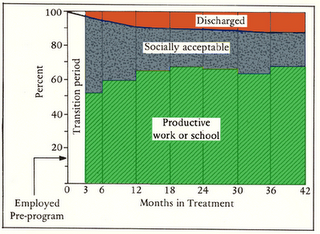
Though the Celebrity advocates More Compassionate Treatment Of Drug Addicts, Addicts NOT Anonymous warns that his Demands for Total Abstinence will do more Harm than Good
Russell Brand has indeed turned his life around. Not only has he kicked addictions to alcohol, heroin and sex, he now practices and advocates a healthy lifestyle which includes yoga, whole foods, exercise and outreach. In fact, Brand supposedly testified on behalf of addicts before the British Parliament’s Home Affairs Select Committee regarding the UK’s drug policy.
However, it is exactly this testimony that Addicts NOT Anonymous believes Brand gave in a self-serving, self-promoting manor to feed his ego and excuse his former actions.
Though Addicts NOT Anonymous agrees with Brand's belief of addiction being in part a criminal problem, as well as his approach that compassionate treatment could help clean up the streets, even that the current system relies on punitive and “symbolic” approach rather than a “pragmatic” one because many addicts are suffering from much deeper emotional and psychological issues, ANA warns that Brand oversimplifies the problem with his cookie-cutter approach.

The celebrity fails to realize, that just because he was able to abstain from drugs seemingly with little difficulty, other addicts who don't have million dollar resources and rehabs to fall back on may have a harder time with abstinence.
In his testimony, Brand explained that many addicts are suffering from much deeper emotional and psychological issues, which aren’t addressed by a night in the drunk tank or community service. “For me, taking drugs and excessive drinking were the result of a psychological, spiritual, or mental condition, so they’re symptomatic…. once I dealt with the emotional, spiritual, mental impetus, I no longer felt the need to take drugs or use drugs.”
Good for you, Brand. Good for you. Too bad it isn't quite that simple or nearly that easy for most addicts with no money and little if any resources.
Unfortunately, Addicts NOT Anonymous warns, Russell calls for total abstinence–which includes not providing methadone to addicts, saying it is often used in tandem with other illicit drugs. Methadone and non-abstinence-based recovery can lead to further criminal behavior, Brand claims, because even those users who are being legally given methadone haven’t really made a significant change.
How does Brand know this? He was never on Methadone or in any non-abstinence-based recovery program.
Not only does research back-up the success of methadone as a treatment aid, I have witnessed its success first hand, having kicked my own heroin addiction with the help of methadone. Though I agree that there are those who abuse the system, which includes abusing methadone, we cannot punish the many addicts who have successfully beaten the odds of addiction with help from methadone, because of some bad-apples who want to get high on anything and everything you set in front of them. I most probably would not be alive today if it wasn't for methadone!
Another issue to examine when considering methadone, is if the addict is living a law-abiding life. Many methadone patients were criminals during their addiction; so as to expect methadone to curb their criminality as well as their addiction seems like asking too much of any medical therapy. Yet that is precisely what happens.

Yet, again, that is exactly what happened. Within three months of starting methadone, more than half of the male addicts were productively employed or attending school. After a year, nearly two-thirds showed changes in employment and in socially acceptable--- that is, arrest-free-behavior over a forty-two-month period. Brand was never on methadone, but he does regularly attend AA and NA meetings, which many believe to be addiction in itself. Isn't religiously going to AA or NA meetings everyday vs. taking drugs everyday just trading one addiction for the other? Brand also claims his practice of Transcendental Meditation is a significant factor in his recovery from drug addiction, but again he is just replacing one addiction for another. He could just as well have replaced his drug use with bowling, scrap-booking or gaming. The question is, which addiction is useful vs. harmful. Healthy vs. unhealthy. Good vs. bad.
Though Addicts NOT Anonymous agrees with Brand that society need more compassionate treatment of drug addicts as well as Brand's stand that drug prohibition is not working, ANA believes that the celebrity has done much good for many addicts seeking recovery. However, if Brand wants to be the voice of addiction, he needs to advocate more than just compassion, but also practice tolerance, understanding and patience, while honoring the statistics.
Written By: Tom Retterbush

